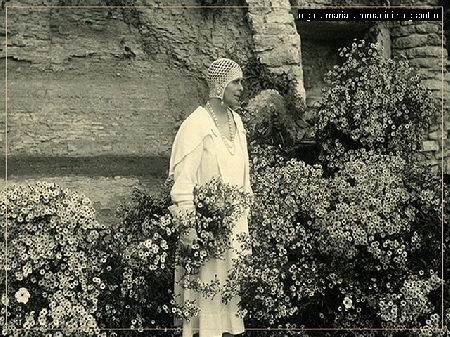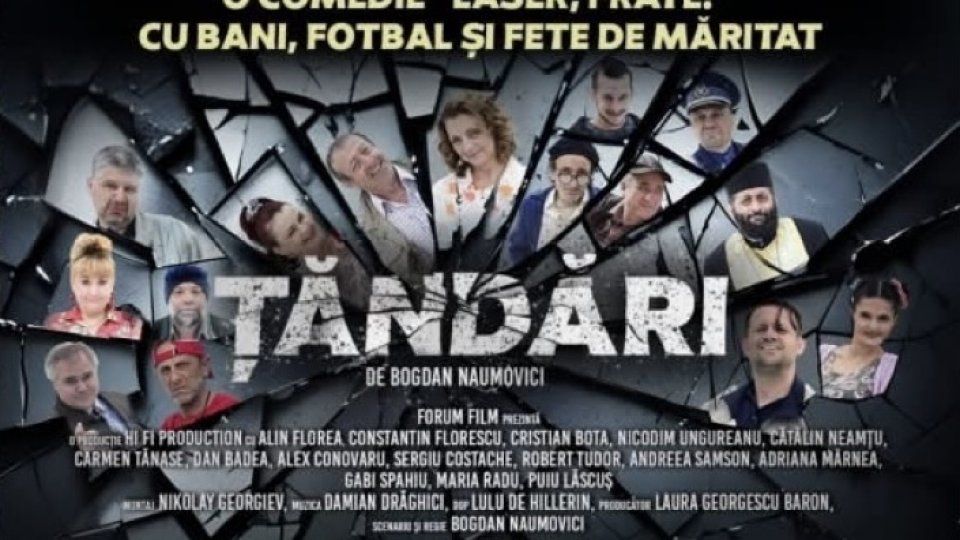Queen Marie of Romania
Today we introduce to you one of the personalities that influenced the history of Romanians in the first half of the 20th Century: Queen Marie of Romania.

România Internațional, 19.07.2013, 12:05
Today we introduce to you one of the personalities that influenced the history of Romanians in the first half of the 20th Century: Queen Marie of Romania. V.F. Writer and analyst Stelian Tanase, president of the “Orient Expres” Foundation, makes a portrait of Queen Marie:
“She was coming from England, she was half British, half Russian, with such great forerunners as the Czar and Queen Victoria. And here she comes, in the middle of nowhere, so to say, in a world that was completely unknown to her and that she didn’t understand. But even so, from the very beginning we see the signs of what Queen Marie was to become.”
Marie Alexandra Victoria, chosen at the age of 17 to be the future Queen of Romania, was born on October 29th, 1875, in Eastwell Park, the daughter of Prince Alfred, Duke of Saxe-Coburg and Gotha, and of Duchess Maria Alexandrovna of Russia. Marie got married to Ferdinand of Hohenzollern, crown prince of Romania, on December 29th, 1892, and the two were crowned in 1914. Here is Dinu Zamfirescu, president of the Institute for the Investigation of the Crimes of Communism:
“This young woman who came to a country she knew nothing about, managed to earn everybody’s respect, thanks to her powerful personality. She played a great part in persuading her husband, King Ferdinand, to be on the side of the Allies in World War I, somehow against the wishes of the late King Carol I, who had made an alliance with the Central Powers.”
Queen Marie was dubbed “Mother of the Wounded” and “Mother of Soldiers” thanks to her active role during WWI, when she could be seen both on the front line and in hospitals, to ease the suffering of soldiers. Here is Dinu Zamfirescu again:
“We should also remember the important part she played in the Peace Conference in Versailles in 1919, and how she pleaded the cause of Romania in the USA, whose president, Woodrow Wilson, was not necessarily a friend of Romania.”
Talking about that period, historian Ion Bulei explains:
“Marie is the one who talked to Clemenceau, the one who represented France at the Peace Conference in Versailles. Clemenceau said: ‘I’ll take my hat off to the Romanian people, but not before the Romanian politicians,’ but Marie replied: ‘How little you know us, Mr. Clemenceau!’ Marie was also the one who arranged a meeting between the then Prime Minister of Romania, Ionel Bratianu, and Wilson, and in that meeting she was also their translator, because Wilson did not speak French and Bratianu could not say a word in English. At that time, in Paris, Marie played a key role for Romania.”
In addition, Queen Marie was involved in the cultural-artistic life of Romania. She was particularly attached to two places, on which she left her unique mark and of which she used to say, “Balcic and Bran are my dream homes, they are my heart.”
She is said to have discovered Balcic, a small town on the north-eastern Bulgarian border thanks to painter Alexandru Satmari (1872-1933) who convinced the queen to visit the place in 1924. One year later, she began the building of the property in Balcic. Historian Ion Bulei explains:
“Balcic is more than a residence built by Queen Marie. There’s also a church there, called Stella Maris, where her heart is buried. She also built a cactus garden there, which is still the biggest of its kind in Europe. She basically developed that town. She saw in it what the painters saw, a town where light can change every two hours, something they captured in their canvases.”
The town hall allotted land to the artists who used to come to Balcic every summer to paint, artists who started building houses there.
Queen Marie was a fascinating person, with her own individual lifestyle, as can be seen in Balcic. She collected and even created art works and would decorate the interiors and exteriors of her dwellings, being one of the promoters of the Art Nouveau style.
In 1933, when drafting her will, Queen Marie expressed her wish that, after her death, her heart be laid to rest in the small chapel, Stella Maris, that she had built on the Black Sea Coast, and her body be entombed in Curtea de Arges, next to her husband, Ferdinand, and the other members of the royal family. The chest carrying Queen Marie’s heart is now in the custody of the National History Museum, in Bucharest. Fully understanding her role and mission during those times, when she stood out as a Queen deeply involved in promoting Romania, Queen Marie wrote her memoirs between 1914 and 1936. Written in English, they were published between 1934 and 1936, under the title of “The Story of My Life”. The book was later translated into Romanian.
Queen Marie’s ardent wish to win the respect of her people emerges from the book. Marie wanted to be loved and she was loved indeed. Ion Bulei has further details:
“Marie’s words in her will: ’It is not for me to judge you, I’ve loved you’ disclose much of her feelings, of a caring person which made her become a Romanian by heart.”
Queen Marie’s biography also mentions a gesture rounding off her unique personality: on March 26th 1926, on Annunciation day, Queen Marie converted to Orthodoxy. Queen Marie did more for the Romanian people than hundreds of diplomats, ministers and presidents.





























